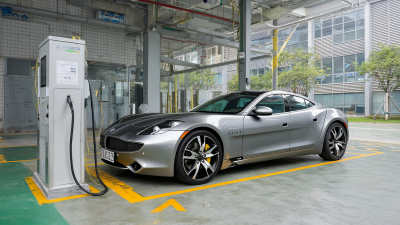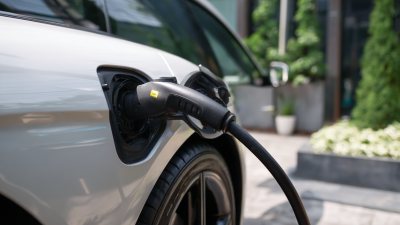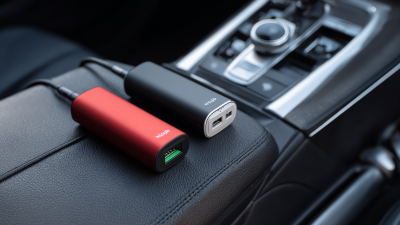
Wall Mounting EV Charge Station
Ultimate Guide to Choosing the Best Ev Fast Charge Station for Your Business
As the electric vehicle (EV) market continues to expand, businesses are increasingly faced with the challenge of selecting the best EV fast charge station to meet the demands of their clientele and boost their competitive edge. According to a recent report by the International Energy Agency, the number of publicly available EV charging stations is projected to exceed 15 million globally by 2030, demonstrating a growing reliance on efficient charging solutions. However, many companies encounter various problems when navigating the landscape of EV fast charge stations, from understanding the technical specifications to determining the optimal charging speed for their operations. This article aims to provide a comprehensive guide to choosing the right EV fast charge station for your business, addressing common issues and offering insights backed by industry data to help you make informed decisions.

Identifying the Right EV Fast Charge Station Alternatives for Your Business Needs
Choosing the right EV fast charge station for your business is a critical decision that can significantly impact your operations and customer satisfaction. According to the International Energy Agency (IEA), the global electric vehicle (EV) stock is projected to reach 145 million by 2030, indicating an undeniable shift toward electrification. This growth emphasizes the importance of identifying fast charge stations that align with your specific business needs, ensuring you cater to the increasing number of EV users.
When selecting an EV fast charge station, consider factors such as charging speed, compatibility with various EV models, and installation requirements. A study by the Department of Energy highlights that deploying DC fast chargers can provide an 80% charge in around 30 minutes, which is crucial for businesses seeking to minimize wait times. Additionally, assessing your location's grid capacity and potential partnerships with charging network providers can enhance your station's efficiency and accessibility, ultimately driving customer loyalty and attracting new clientele. By strategically identifying the right EV fast charge alternatives, your business can position itself as a leader in the sustainable transportation movement.
Ultimate Guide to Choosing the Best Ev Fast Charge Station for Your Business
| Station Type | Charging Speed (kW) | Connection Type | Installation Cost ($) | Maintenance Cost (Annual) | Ideal Use Case |
|---|---|---|---|---|---|
| Level 2 Charger | 7.2 kW | Type 1, Type 2 | 1,500 | 200 | Workplace Charging |
| DC Fast Charger | 50 kW | CHAdeMO, CCS | 30,000 | 1,000 | High Traffic Areas |
| Ultra Fast Charger | 150 kW | CCS, Tesla | 50,000 | 2,000 | High-Speed Routes |
| Mobile Charger | 3.7 kW | Type 1, Type 2 | 500 | 50 | Home Use, Emergencies |
Comparing Level 2 Chargers vs. DC Fast Chargers: Pros and Cons
When considering the best EV fast charge station for your business, it’s essential to understand the differences between
Level 2 chargers and DC fast chargers.
Level 2 chargers typically operate at 240 volts and are ideal for longer parking situations, providing an efficient way to charge electric vehicles over several hours.
This makes them suitable for businesses that have fleet vehicles or for locations where customers might stay for extended periods, such as shopping centers or hotels.
However, the charging time can be a drawback, as it usually takes several hours to fully charge a vehicle.
On the other hand, DC fast chargers supply a significantly higher voltage, allowing for rapid charging in 30 minutes or less.
This option is perfect for businesses that require quick turnaround times, such as gas stations or convenience stores.
While the installation and equipment costs for DC fast chargers can be higher, the faster charging capabilities can attract more customers, ultimately translating to increased revenue.
Each type has its pros and cons depending on the specific needs of your business, making it crucial to assess your customer demographics and parking durations before making a choice.
Exploring Solar-Powered Charging Stations as a Sustainable Option
As electric vehicle (EV) adoption surges globally, integrating solar-powered charging stations presents a sustainable solution that addresses both energy needs and environmental concerns. Recent initiatives, such as those from Chandigarh administration, indicate a growing trend to power EV charging stations with energy generated from solar plants. Utilizing renewable energy reduces reliance on fossil fuels, thereby minimizing carbon emissions significantly. A report highlights that charging stations powered by solar energy can reduce CO2 emissions by up to 80% compared to traditional grid-based power sources.
Furthermore, the feasibility studies indicate that deploying solar-powered EV charging stations not only alleviates issues related to grid congestion but also enhances energy security. As the demand for charging infrastructure escalates, aligning it with renewable energy helps to future-proof the system. A comprehensive review reveals that integrating solar technologies into EV charging can diversify energy sources and support grid stability, effectively addressing EV range anxiety that many potential users are concerned about. By harnessing solar power, we secure a clean, sustainable, and resilient charging infrastructure, paving the way for a greener transportation future.

Evaluating Public Charging Networks: How They Fit into Your Business Strategy
As businesses increasingly adopt electric vehicle (EV) charging solutions, understanding public charging networks becomes essential for a robust business strategy. According to the International Energy Agency (IEA), the global number of public EV charging points has soared to over 2.5 million in 2022, and this is projected to double by 2025. Choosing the right charging network can significantly impact both operations and customer satisfaction, providing a competitive edge in the evolving marketplace.
Tip: When evaluating charging networks, consider their reliability, availability, and integration capabilities with your current infrastructure. Opting for a network that offers real-time data on charger availability can enhance user experience and customer loyalty. Additionally, look for networks that cater to the specific EV models your customers are likely to use, ensuring a broad range of compatibility.
As you align public charging solutions with your business goals, it’s crucial to analyze the demographic and geographic data of your customer base. A report by McKinsey highlights that urban areas dominate EV adoption, with nearly 60% of EV owners residing in metropolitan regions. This insight can guide you in selecting strategic locations for your chargers and partnering with networks that best serve those areas.
Tip: Engage with your local EV community to better understand their needs and preferences. Local insights can inform decisions about charger specifications, pricing models, and even potential collaborations with local businesses or municipalities that enhance your charging station’s visibility and usage.
Understanding Incentives and Grants for Investing in Alternative Charging Solutions
When considering the implementation of electric vehicle (EV) fast charge stations for your business, it's crucial to explore the various incentives and grants available to ease the financial burden. Many governments recognize the importance of transitioning to sustainable energy sources and offer significant financial incentives to support businesses in making this shift. Programs may include tax credits, rebates, or even outright grants dedicated to the installation of EV charging infrastructure. By taking advantage of these offerings, businesses can significantly lower their initial investment and operational costs, making it more feasible to integrate charging solutions into their service offerings.

Engaging with local and federal programs is a strategic move not just for funding, but for positioning your business as an environmentally conscious entity. Participating in these initiatives can enhance your brand image and attract a clientele that prioritizes sustainability. Additionally, some incentives may come with technical assistance, helping businesses navigate the installation process and ensuring compliance with evolving regulations. By understanding and leveraging these financial resources, you can make a more informed decision about which EV fast charge station is best for your business, ultimately contributing to a greener future while also maximizing your return on investment.
Related Posts
-

2025 Trends Revealed 7 Key Innovations in Best Ev Charger Technology
-

7 Tips for Choosing the Best AC Ev Charging Cable for Your Electric Vehicle
-

7 Compelling Reasons to Choose Home Wall Ev Charge Station for Your Business
-

5 Compelling Reasons Why Investing in AC EV Chargers is Crucial for Sustainable Growth
-

Noteworthy Variants of AC EV Charging Cables You Should Consider
-

Unleashing Innovation in Portable EV Chargers from China Quality Assurance for Global Buyers

